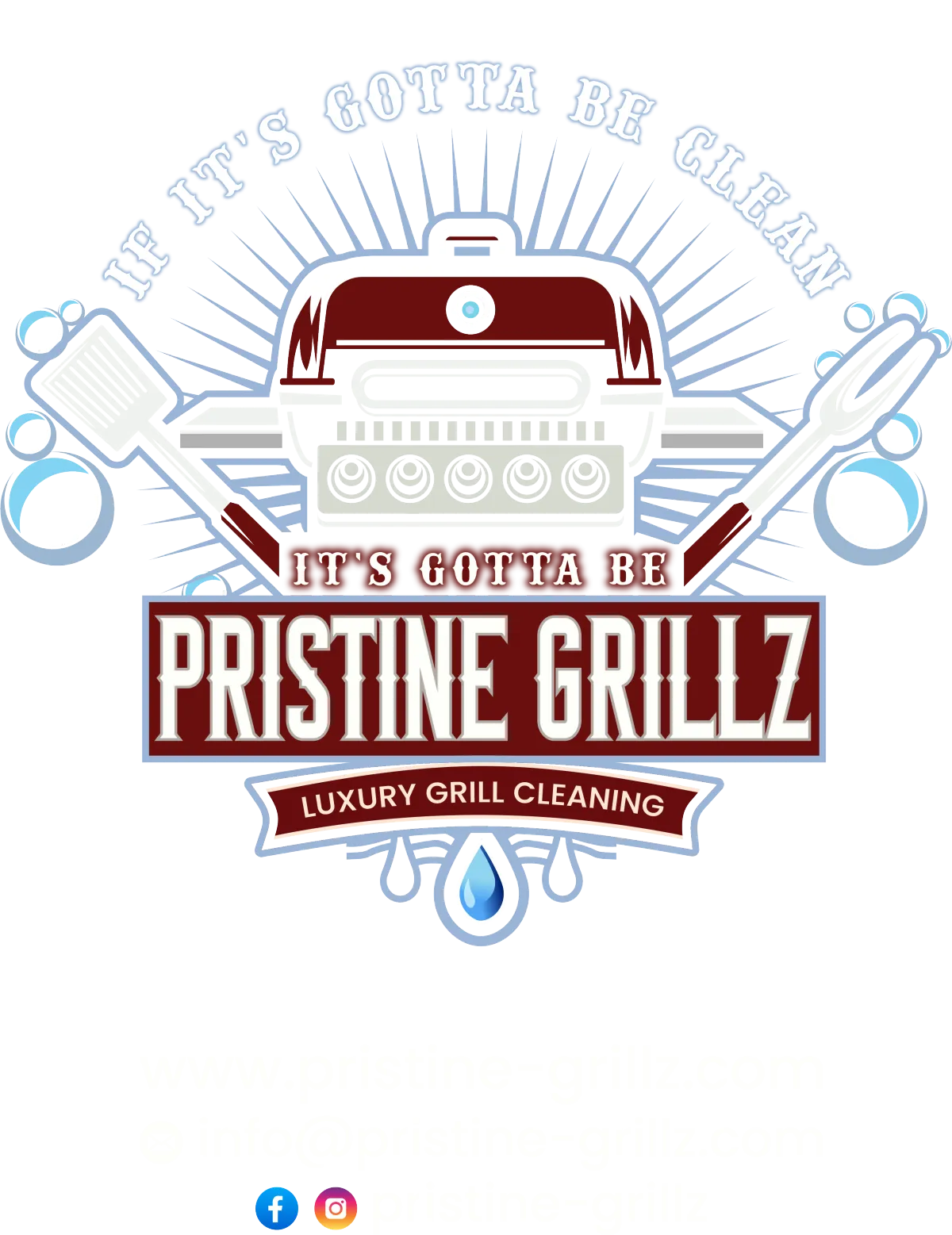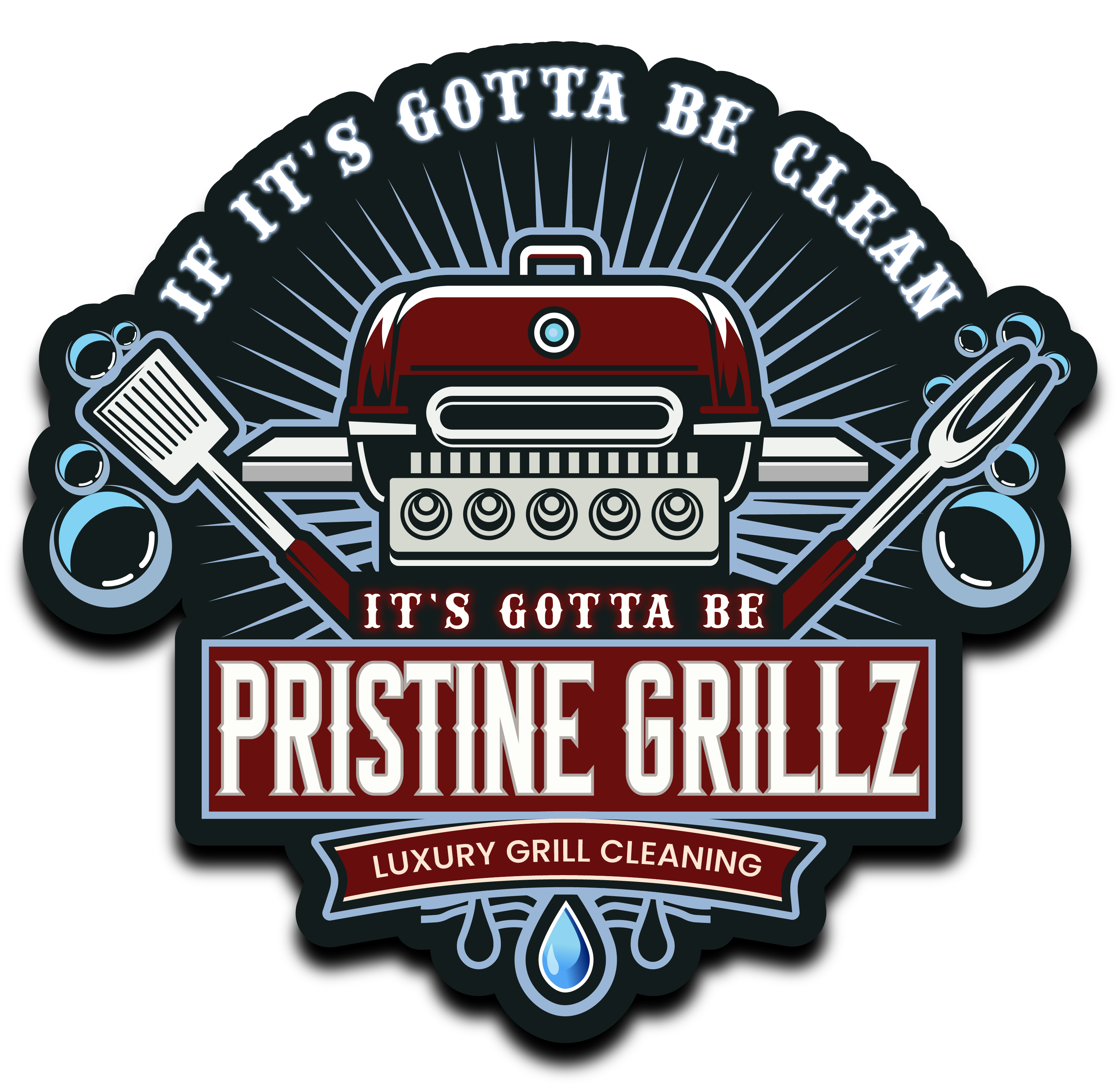The Critical Importance of Removing Carcinogens from Your Cooking Surfaces
When you fire up your grill for a family barbecue, food safety is probably the last thing on your mind. You're thinking about perfectly charred steaks, smoky flavor, and good times with loved ones. But lurking on those grill grates might be something far more dangerous than undercooked meat: carcinogenic compounds that can transfer directly onto your food. Understanding these risks and how to properly eliminate them is essential for anyone who takes outdoor cooking seriously.
What's Really on Your Grill
Every time you cook, especially with high-heat grilling, you create carbon deposits and grease buildup on your cooking surfaces. These aren't just unsightly—they contain polycyclic aromatic hydrocarbons (PAHs) and heterocyclic amines (HCAs), compounds formed when meat juices and fats drip onto hot surfaces and create smoke, or when meat is charred at high temperatures. These substances are recognized carcinogens that have been linked to various cancers in numerous scientific studies.
The problem compounds with each cooking session. Old carbonized material becomes a repository for these harmful chemicals, and when you heat your grill again, these carcinogens can transfer onto fresh food. That char you're adding to tonight's burger might actually be contaminated residue from last month's chicken, carrying concentrated carcinogenic compounds directly onto your family's dinner.
Additionally, grease that's allowed to accumulate and repeatedly heat undergoes chemical changes that increase its toxicity. Rancid oils and fats don't just taste bad—they contain harmful oxidation products that you definitely don't want in your food. Regular, thorough cleaning is the only way to break this cycle of contamination.
The Wire Brush Problem
For years, the standard approach to grill cleaning involved aggressive scraping with steel wire brushes. While this method does remove some surface debris, it creates a potentially worse problem: wire bristles breaking off and embedding themselves in your cooking surface or, worse, in your food. Emergency rooms across the country treat cases of wire bristle ingestion every year, with patients suffering punctured throats, damaged intestines, and serious internal injuries requiring surgery.
This is trading one danger for another—removing carcinogens while potentially introducing metal bristles that can cause immediate, severe physical harm. It's an unacceptable risk, particularly when safer, equally effective methods exist.
Professional Cleaning Techniques
At Pristine Grillz, we've invested in proper tools and techniques that effectively remove carcinogenic buildup without introducing new hazards. We use specialized cleaning systems that combine appropriate heat, food-safe cleaning solutions, and non-wire scrubbing tools designed specifically for grill surfaces. Our methods break down and remove carbonized material, grease deposits, and harmful residues completely.
Our process begins with heating the grill to specific temperatures that help break down deposits, making them easier to remove. We then apply professional-grade, food-safe degreasers that chemically break down the bonds holding carcinogenic residue to your cooking surfaces. These solutions are specifically formulated to tackle the unique challenges of grill cleaning without leaving harmful chemical residues of their own.
We use specialized scraping tools, and high-temperature steam cleaning rather than steel wire brushes. These tools are equally effective at removing buildup but won't leave dangerous bristles behind. For heavily soiled areas, we may remove grates entirely for deep cleaning with methods that simply aren't available to homeowners.
Beyond the Grates
Carcinogenic buildup isn't limited to cooking grates. Flavorizer bars, heat tents, burner shields, and the interior surfaces of your grill hood all accumulate these harmful compounds. Smoke carrying PAHs coats every interior surface, creating a toxic environment that recontaminates cleaned grates as soon as you fire up the grill again.
Comprehensive professional cleaning addresses all these areas. We remove and clean components that most homeowners never touch, ensuring that every surface your food might contact or that might produce smoke around your food is free from carcinogenic buildup. This whole-system approach is the only way to truly protect your family.
The Frequency Question
How often should you have your grill professionally cleaned to minimize carcinogen exposure? For frequent users cooking several times per week, quarterly professional cleaning is ideal. If you grill weekly or bi-weekly, semi-annual professional cleaning maintains safety. Even occasional users benefit from at least annual professional cleaning, as carcinogens accumulate over time regardless of frequency.
Between professional cleanings, basic maintenance helps. Scrape your grill after each use while it's still warm, using a safe brass brush or scraper. This prevents the heaviest buildup. But understand that routine maintenance doesn't replace professional deep cleaning—it just extends the time between necessary professional services.
Your Family's Health Is Worth It
We don't mean to alarm you, but we do want you to understand the real risks associated with cooking on dirty grills. The good news is that proper, regular professional cleaning virtually eliminates these risks. You can enjoy grilled food with confidence, knowing that you're not exposing your family to unnecessary carcinogens or the danger of wire bristles.
Pristine Grillz removes the threats you can't see, using methods that won't introduce new ones. Clean cooking surfaces mean safer food and genuine peace of mind every time you grill.

Innovation
Fresh, creative solutions.

Integrity
Honesty and transparency.

Excellence
Top-notch services.

FOLLOW US
COMPANY
CUSTOMER CARE
Copyright 2025. Pristine Grillz. All Rights Reserved.
